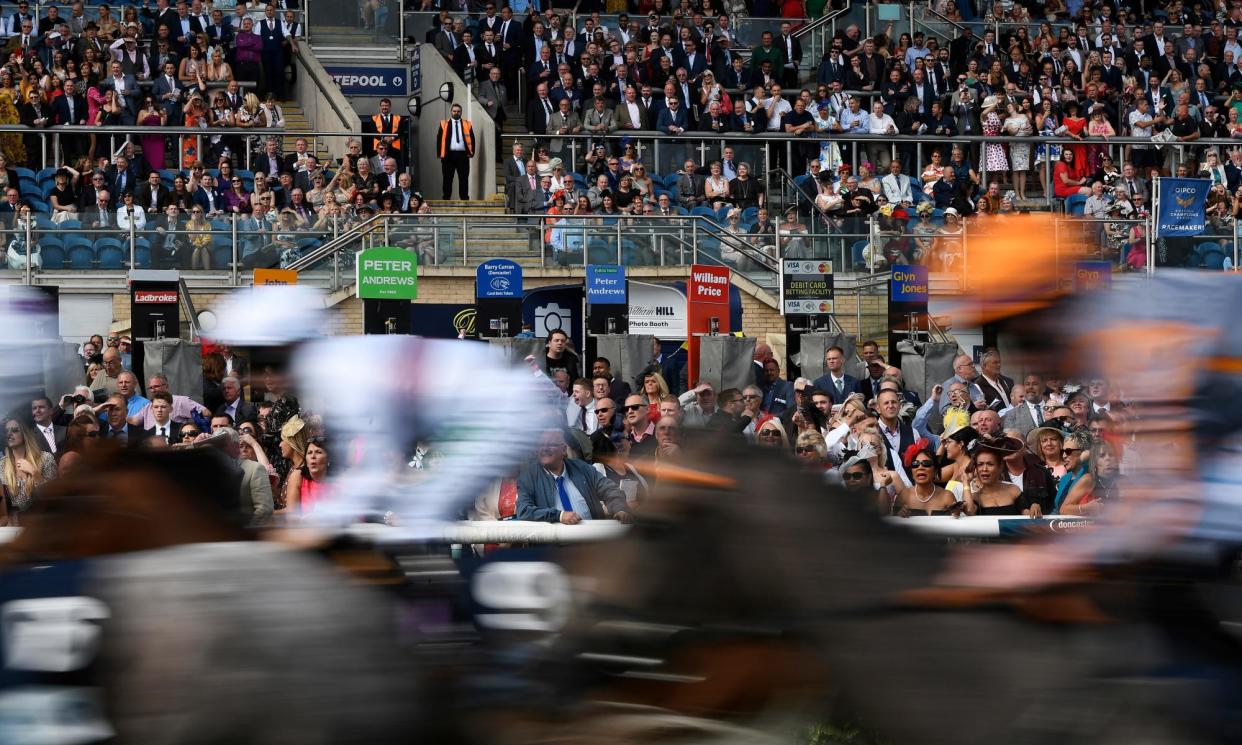Would an outdoor smoking ban have an effect on racecourse attendances?

When Bollin Eric won the St Leger at Doncaster in September 2002, the race sponsor’s brand and colours were prominently advertised around the winning post and down the long home straight, and a senior executive was on hand to present the historic prize to the winning connections – as you would expect. And yet, looking back less than a quarter of a century later, it feels like an entirely different epoch, because the sponsor was Rothmans Royals cigarettes.
Doncaster’s decision to allow a tobacco company to sponsor the world’s oldest Classic from 1999 was, admittedly, controversial even then, and after four runnings of the Rothmans Royals St Leger, a general ban on tobacco sponsorships in sport consigned that version of the Leger to history. But there was still a mixture of astonishment and concern among Britain’s racecourse executives last week when it emerged that the new Labour government may consider extending the ban on smoking in indoor areas to include many outdoors areas as well.
Related: Starmer faces pushback from pubs over ‘bonkers’ outdoor smoking curb plans
One of the country’s longest‑serving racecourse administrators did not mince his words. Pat Masterson, managing director of Newton Abbot, told the Racing Post: “I would imagine a smoking ban outside would give us problems. Why would a government seek to do this? It’s a mad, idiotic decision.”
Anxieties about the possible impact of a general smoking ban at racecourses involve both the practicality of enforcement and the potential effect on attendance. Britain’s racecourses have already had a 20% drop in attendance since 2016, from 6 million to 4.8 million in 2023, anything that might add to the difficulty of attracting racegoers back to the track is always going to be a concern.
From the racecourses’ point of view, there is no evidence that smoking in outdoor areas at racecourses is either an irritant or a health issue for non-smoking racegoers, but good reason to fear that at least a few of their current racegoers may join those who did not return after the Covid‑era restrictions were lifted in July 2021.
Goodwood 1.45 Pantile Warrior 2.20 Night On Earth 2.55 Radwan 3.30 Lady Luzon 4.05 Many A Star (nap) 4.40 East India Dock 5.15 Imperial Cult (nb)
Chepstow 2.00 Redredrobin 2.35 Bownder 3.13 Over Spiced 3.48 Stalingrad 4.23 Caffu Zafeen 4.58 Concierge 5.30 Judge Frank
Southwell 3.05 Saytarr 3.40 Street Life 4.15 Shader 4.50 Melanies Joy 5.25 Get The Music On 6.00 Motagally 6.30 King Of York 7.00 Saturnalia 7.30 Balqaa
Newcastle 5.10 Sands Of Indi 5.45 Bonnie’s Boy 6.15 Brunello Breeze 6.45 Clockwatcher 7.15 Wee Fat Mac 7.45 See My Baby Jive 8.15 Barleybrown 8.45 Flash The Dash
Having survived 15 months without full crowds from March 2020, it is easy to understand how many smaller tracks in particular could see a smoking ban as merely the latest unwanted and unexpected blow pushing their bottom line a little closer to the edge.
The new government’s ultimate aim with regard to smoking, though, is the same as that of its predecessor: stamp it out entirely over the course of the next few decades. The proposed year‑on‑year raising of the age at which tobacco products can be legally purchased is a key part of the policy, but persuading those who have already started smoking to give up is important too and if a ban on smoking outside sees a surge in inquiries about quit plans, it will be seen as a success.
With the average price of a packet of cigarettes now pushing £16, it could also be argued that any racegoer who manages to kick a 20-a-day habit will have an extra £400 per month for “leisure spend”. That’s more than enough to allow for an extra trip or two to the racecourse each year if their local track’s marketing department is doing its job.
Racecourses, and at least some of their racegoers, may see a ban on smoking at the track as an unnecessarily severe – or even “idiotic” – answer to a non‑existent problem, but ultimately, if it happens, tracks will adapt and move on.
So perhaps the best lesson to be learned from the reaction to last week’s leak of the government’s – still unconfirmed – scheme involves the sport’s increasing tendency to circle the wagons at every hint of a potential hazard ahead.
Racing has many issues to address, but if you talk yourself into believing that there are existential threats on all sides, it can be easy to miss the genuine concerns amid the general noise.


